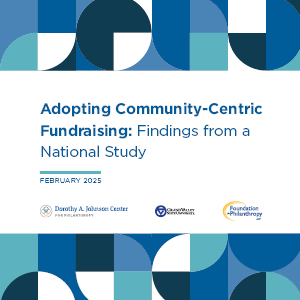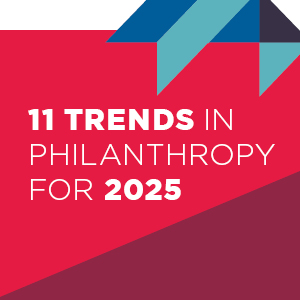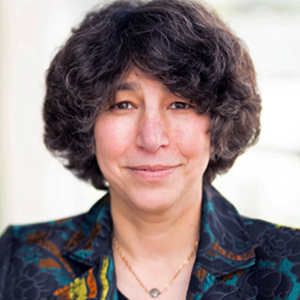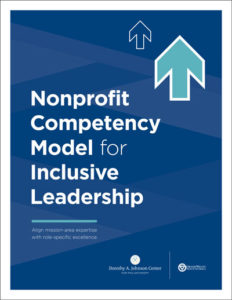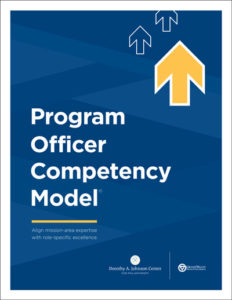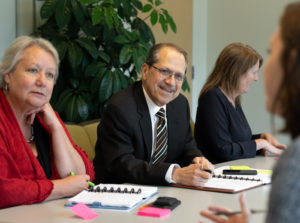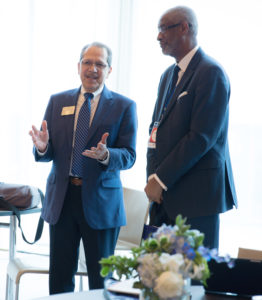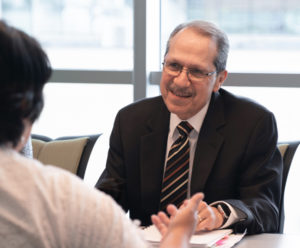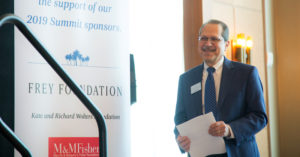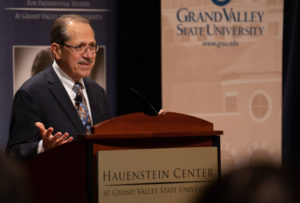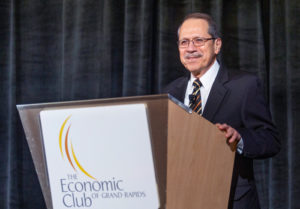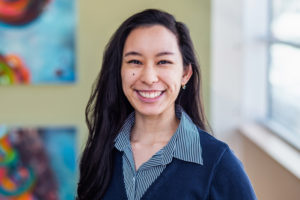AUG 17, 2021
BLOG / DEI & INCLUSIVE GROWTH
Diversity, Equity, and Inclusion in Philanthropy: Three Years at the Johnson Center
by Trish Abalo
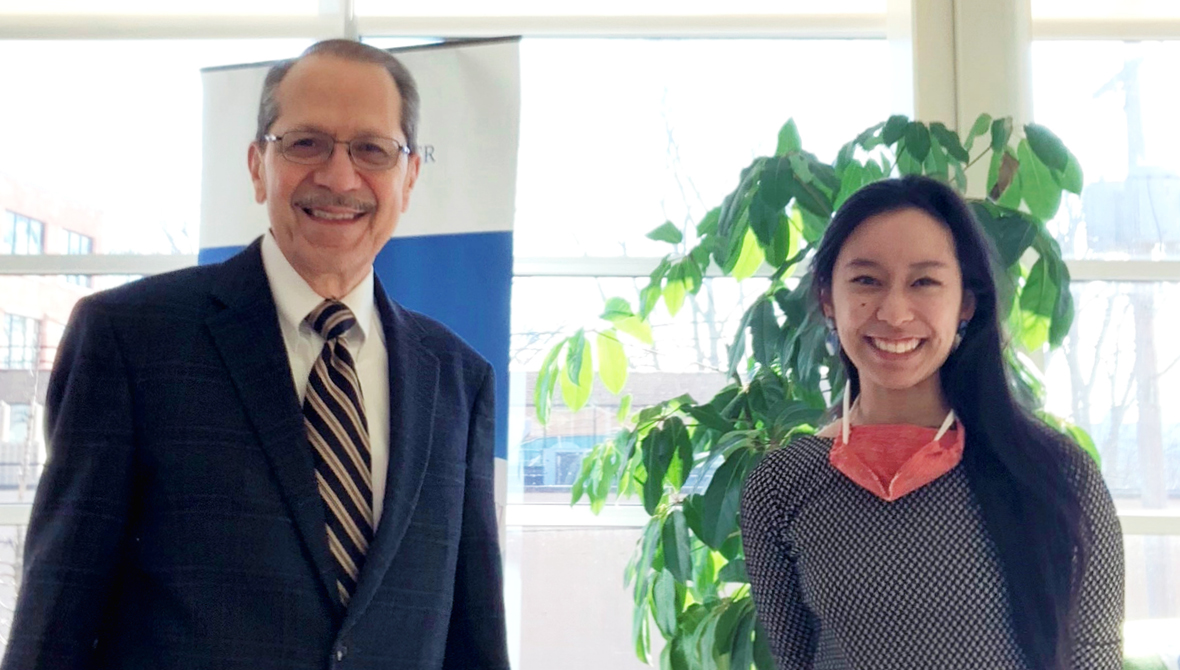
When Dr. Juan Olivarez joined the Johnson Center for a three-year term as Distinguished Scholar in Residence for Diversity, Equity, and Inclusion in 2018, he came with a crucial mandate: to better understand and document the status of philanthropy’s efforts in the realms of diversity, equity, and inclusion.
Crafting a Research Agenda on DEI
As the first position of its kind, Juan brought over fifty years of unique leadership and experiences in applied research of education, philanthropy, and community engagement to his work as Scholar. These informed how he would craft a thoughtful research agenda within the landscape of DEI work at the Johnson Center, with his efforts ultimately converging around two key areas:
- establishing a local inclusive growth initiative in Grand Rapids and West Michigan, and
- supporting the development of local talent pipeline initiatives that could contribute to a more inclusive field.
Juan concluded his term at the end of June 2021. Getting to work alongside him as his research associate in his last year, I saw how his three years here were busy — sometimes impossibly — bustling with community convenings, speaking engagements, and expansive research. But they were also fast. As he reflects,
I only scratched the surface of these broad and complex subjects in the sector. Much more needs to be done to incorporate the values and principles of diversity, equity, and inclusion to impact the practices of philanthropy and nonprofits. This will only come through more listening, data collection, research studies, and the development of effective tools to assist in the implementation of best practices.
Inclusive Growth: A Community-Based Effort to Support Prosperity for All
“The specific work on inclusive growth was particularly fascinating as it clearly depends on the leadership and involvement of the philanthropic sector,” Juan observes. “Playing a funding role will be important, as well as playing the role of convener. Research into the process, roles, and collective impact needs to be addressed.”
Juan and graduate assistant Kahler Sweeney dove into the idea of “inclusive growth” — also known as “inclusive economies” — early in their work. As Juan and Kahler scanned the field for existing efforts, burgeoning research, and information on best practices, they leveraged their conversations and growing bibliographies into a digital and in-person series, Strategies for Shared Prosperity.
In 2019, Strategies for Shared Prosperity brought together voices from the Cleveland Foundation, the New Economy Initiative, and others to show how inclusive growth strategies can be most successful when they leverage cross-sector partnerships. This collection of articles, videos, and research reports can be explored in the Johnson Center’s Inclusive Growth collection.
VIDEO
Toward Inclusive Growth Communities
One series highlight included a panel of three Michigan mayors — Rosalynn Bliss (Grand Rapids), Bobby Hopewell (Kalamazoo), and Andy Schor (Lansing) — convened to discuss inclusive growth efforts in their cities and across Michigan before an audience of over 400 attendees.
Simultaneously, Juan worked closely with Pam Parriott, then president of Kent County collective impact organization KConnect, to bring together nearly two dozen local organizations in an effort to design and implement a local inclusive growth framework — an effort called InGR: Inclusive Growth Grand Rapids.
Throughout these efforts, Juan urged people to see themselves in this work, to recognize their role in it, and to collaboratively enact how we move forward — whether with field staff from the Michigan Economic Development Corporation, students and faculty at Grand Valley, or funders at the Council of Michigan Foundations.
“We all have a role in creating inclusive growth communities,” Juan says, “and it’s the intersection of all supportive efforts that make it possible and successful.”
Building a More Inclusive Field by Investing in Philanthropy’s Workforce
Juan’s years with the Johnson Center coincided with some significant shifts in our approach to providing professional development for nonprofit and foundation practitioners and donors.
Competency-based hiring has also been shown to support higher rates of staff retention and overall hiring for people of color (Talent 2025 and West Michigan Works!, 2018). Our development, use, and promotion of these models is part of our overall efforts to support a more diverse and inclusive field. The Johnson Center was fortunate to have a trailblazing educator on our team as we worked! We turned to Juan repeatedly throughout the process of developing our competency models and updating course content. He provided examples, perspective, research, and other resources — including serving as an instructor himself several times — that expanded our thinking and brought nuance to our approach.
Juan brought this same advocacy for equity to his many public appearances with partner organizations like the Council of Michigan Foundation, Kent School Services Network, and the Right Place. He worked closely with several local and statewide programs — like the Michigan Nonprofit Association — to bring attention to needed investments in talent development for philanthropy.
“Addressing the talent pipeline for the sector continues to be an area of needed exploration,” says Juan. “Preparation of talent, hiring practices, retention practices, and organizational culture are areas that must be addressed holistically and in close collaboration with prospective and current staff.”
Surveying Local BIPOC-Founded and BIPOC-Led Nonprofits in Kent County, Michigan
In the winter and spring of 2021, Juan and I undertook a project to help philanthropy better understand capacity building needs, strengths, and challenges as expressed by the leaders of BIPOC-founded/led and BIPOC-led nonprofits in Kent County. We surveyed several dozen leaders of color to identify the unique strengths of their organizations and their roles in their communities, the kinds of capacity support they have used or would like access to, and the challenges they consider to be the biggest hurdles to their mission-area’s success.
We will be releasing the full results of our study in the next few weeks. For now, we’d like to share that the outlook on opportunities in Kent County indicates insufficient progress for BIPOC-founded/led and BIPOC-led nonprofits over the last decade. As the nonprofit field continues to be intentional in its need for representation of BIPOC in all areas of the sector, capacity building of BIPOC-founded/led and BIPOC-led nonprofits is a key pathway forward.
While the report’s surveyed population focused on nonprofit practitioners based in Kent County, Michigan, these BIPOC leaders raise issues and call for actions that have been ongoing for decades, and more recently we can very clearly see and hear these calls coming from all over the country and the world. I’m hopeful that these findings can help guide our own work and support others to enhance the ways they listen to and lift up leaders and communities of color.
Knowing Our History to Shape Philanthropy’s Quest for Equity
During this time, Juan and I also engaged in an initiative with the Council of Michigan Foundations as part of their 2021 Equity Signature Series. We set out to tell a story of Philanthropy’s Quest for Equity, generating a 160-year timeline and analysis of milestones in U.S. philanthropic history, beginning with the events of the Civil War and winding its way to the present. This work has since become part of the Johnson Center’s course offerings; the program will also be presented at the Upswell Conference in October 2021.
Equity work within the sector must be grounded in an honest understanding of history, reflected in Juan’s work on philanthropy’s role in reparations to confront inequitable accumulation and distribution of wealth and power, and the role of decolonizing wealth to create a new paradigm for the financial and philanthropic field.
Throughout our conversations, Juan expressed the importance of being bold, as well as patient, in how we pursue change. He drew attention to how historical shifts have shaped our collective journey and the momentum needed to move towards social justice. As a young person of color coming of age in the early 2000s, I learned deeply from our exchanges about social change. I’m eager to see how this segment of his work will continue to impact philanthropy.
“We’ve made small, incremental progress over the past 160 years,” says Juan, “but we must recognize that we are still not able to say that social justice is prevalent in our democratic society. Deeper efforts are needed to change structural and systemic racism, and we must have the patience and trust to fund efforts that are made sustainable over time. No more short-term Band-Aids!”
Inclusive Growth: A Documentary Featuring Local Leaders
“I wanted to present the community with a way to capture where we are today and what we’re capable of, especially through the collective voices of community leaders from different sectors.”
As Juan closed out his time, he and I worked closely with Rev. Joe Jones, the president and CEO of the Hekima Group and a Grand Rapids City Commissioner, and Klaas Kwant, director of I.T. media technology at Grand Rapids Community College, to connect with and interview 30 local leaders. Interviewees range from elected officials to entrepreneurs to artists and educators, including:
- Dr. Philomena Mantella, president of Grand Valley State University
- Salvador Lopez, president of KConnect
- Jamiel Robinson, founder & CEO of Grand Rapids Area Black Businesses
- Beca Velazquez-Publes, executive director of Urban Core Collective
- Lynne Ferrell, program director of Frey Foundation
- Dr. Justin Beene, founder of Grand Rapids Center for Community Transformation
- Tina Freese Decker, president & CEO of Spectrum Health
The video will be used to catalyze conversations throughout Kent County, to prioritize neighborhood-level needs, embrace the potential of local economies, and puts factors like health, education, and housing on par with job creation — while closing income inequality from stagnating wages, lack of access to good jobs, and increasing costs of living.
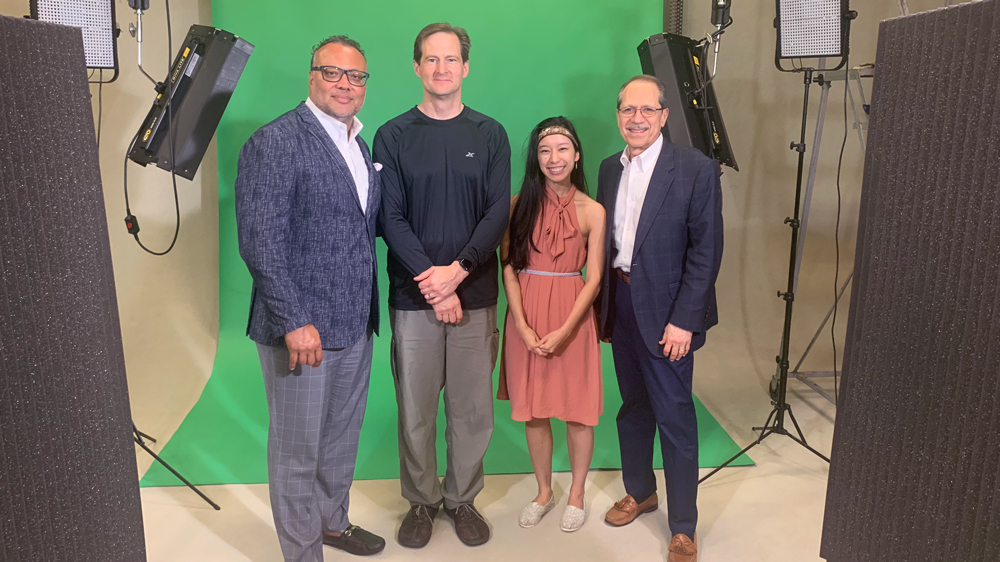
VIDEO
Inclusive Growth 2021
Recommendations for Moving the Field Forward
We knew from the beginning that Juan would only have so much time to explore and set the groundwork for what is truly a generational effort. Social justice, equity, and belonging — it will continue to take time, resources, and the will to realize a world where these values are embedded in our communities. We must do this work, and we must do it with, as Juan says, “urgent collaboration and deliberate patience.”
While Juan’s many community engagements and board positions will continue to keep him busy in the months and years to come, he leaves us this summer with a few key recommendations for the Johnson Center and for philanthropy as a whole:
- For many in our sector, the shift toward equity prompted by 2020’s historic crises is both critically urgent and significantly new — especially at the scale many are pursuing. In order to maximize the change we can achieve, and to sustain our progress toward equity beyond this moment, philanthropy needs a plan for the documentation, evaluation, and dissemination of this work.
The Johnson Center is currently home to endowed chairs in family philanthropy and community philanthropy. A similarly endowed position dedicated to the study and advancement of diversity, equity, and inclusion in philanthropy would be a transformative addition to the sector.
- We must expand the role of applied research in advancing DEI. This imperative calls on funders to support the work and researchers to partner authentically and equitably with communities to study such subjects as:
– Collective impact for social change
– The role of philanthropy in creating inclusive growth communities
– The community impact of BIPOC-founded/led and BIPOC-led nonprofits
– How DEI can affect philanthropic transformation
– Making investments in the power of local, organized communities of color
– Identifying effective practices for recruitment and retention of BIPOC in the sector
– Eliminating unnecessary traditional constraints tied to philanthropic dollars in order to fully capitalize on these resources
– Addressing “root causes” of issues, not the symptoms alone — this entails being explicit about a structural racism analysis in theories of change and grantmaking
- We must all work more deliberately to connect with, hire, support, invest in, turn to, mentor, resource, and otherwise lift up people and communities of color within philanthropy. This includes trusting “small” organizations founded and led by BIPOC who may not have the same balance sheets or history that large well-established organizations have, but hold community relationships, reputation, and dedication of its staff and board. By centering their voices and experiences through blogs, articles, essays, webinars, workshops, free programs, conferences, speaking engagements, community convenings, etc., we build spaces and open doors that have been closed for too long.
Grounded in Relationships with Lasting Impact
I believe that Juan modeled the ideas and practices he uplifted every day. He brought a deliberately collaborative approach to his applied research that continues to resonate with me. While Juan’s work has large-scale implications, his ability to ground that work in local relationships distinguished him in ways that all who know him are familiar with. Whether fetching a team lunch from his favorite deli on Fulton Street, attending a DEI committee meeting, or chairing a resident proposal review board (to allocate the historic Ready by Five Early Childhood millage with First Steps Kent), Juan always put relationships at the center of his work.
While Juan no longer works for the Johnson Center (we miss his wisdom and smile around the office!), he still works with the Johnson Center and inspires our work. We are continuing to think about and explore the research questions related to inclusive growth that Juan and his collaborators identified in the past three years. And we are eager to continue featuring the efforts and experiences of others on our platforms — such as an ongoing collaboration between the Fund for Our Economic Future and the Metro West Community Development Organization.
I am grateful for the opportunity to be among Juan’s many mentees, thought partners, and research practitioners in this work. We at the Johnson Center wish Juan joy and abundance in the continued work of community change (while simultaneously embracing much more time for rest and recovery)! His writings, research, and presentations will continue to live on our website as resources and inspiration for the field. His contributions and enduring commitment to this work will continue to catalyze and sustain efforts towards the community transformation that we all deserve.
Reference
Talent 2025 & West Michigan Works! (2018, August). HireReach: Executive Summary. Retrieved from https://static1.squarespace.com/static/5b86a6a35b409bf1be02158f/t/5b86befb70a6adf8ed01ad07/1535557371814/HireReach_Executive+Summary+August2018.pdf


